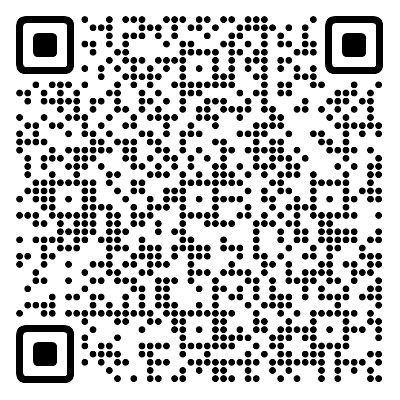A Formation of Self
Before even touching the camera, I made a list of some of the photographs I would take: web covered with water, grimace reflected in the calculator screen, hand holding a tiny round mirror where just my eye is visible, cat’s striped underbelly as he jumps toward the lens, manhole covers, hand holding a translucent section of orange, pinkies partaking of a pinkie swear, midsection with jeans, hair held out sideways at arm’s length, bottom of foot, soap on face. This, I think is akin to a formation of self. Perhaps I have had the revelations even if the photos are never taken.
I already know the dual strains the biographers will talk about, strains twisting through a life. The combination is embodied here: I write joyfully, in the margin of my lab book, beside a diagram of a beaker, “Isolated it today, Beautiful wispy strands, spider webs suspended below the surface, delicate tendrils, cloudy white, lyrical, elegant DNA! This is DNA! So beautiful!”
I should have been a Renaissance man. It kills me to choose a field (to choose between the sciences and the humanities!). My mind roams, I wide-eyed, into infinite caverns and loops. I should fly! Let me devour the air, dissolve everything into my bloodstream, learn!
The elements are boundless, but, if asked to isolate them, I can see tangles around medicine and writing. The trick will be to integrate them into a whole, and then maybe I can take the photograph. Aahh, is it already there, no? Can’t you see it? I invoke the Daedalus in me, everything that has gone into making me, hoping it will be my liberation.
Music is one such element. The experience of plying in an orchestra from the inside is an investigation into subjectivity. It is reminiscent of Heisenberg’s uncertainty principle: the more one knows the speed of a particle, the less one knows its position. Namely the position of the observer matters and affects the substance of the observation; even science is embracing embodiment. I see splashes of bright rain in violin arpeggios fading away in singed circles, a clarinet solo fades blue to black, and a flute harmony leaves us moving sideways, a pregnant silence, the trumpets interrupt with the smell of lightning. Perhaps in the audience you would sense something else.
I think of rowing as meditation. Pshoow, huh, aaah; pshoow, huh, aaah. I can close my eyes and still hear it. We glide over reflected sky… and lean. And defy the request for “l(fā)eadership positions,” laugh at it, because it misses the entire point, that we are integral, one organism. I hear the oars cut the water, shunk shunk; there are no leaders.
Once I heard an echo from all quarters. “Do not rush,” said the conductor, “follow the baton.” “Do not rush,” said the coach, “watch the body in front of you.” Do not rush.
I write about characters’ words: how they use words, how they manipulate them, how they create their own realities; words used dangerously, flippantly, talking at cross purposes, deliberately being vague; the nature of talking, of words and realities. Perhaps mine has been a flight of fancy too. But, come on, it’s in the words, a person, a locus, somewhere in the words. It’s all words. I love the words.
I should be a writer, but I will be a doctor, and out of the philosophical tension I will create a self.
點(diǎn)評(píng):
This essay is a good example of an essay that shows rather than tells the reader who the author is. Through excited language and illustrative anecdotes, she offers a complex picture of her multifaceted nature.
這篇文章是一個(gè)很好的例子,它除了告訴讀者作者是誰(shuí)外還展示了許多其他東西。通過(guò)充滿(mǎn)激情的語(yǔ)言和說(shuō)明的例子,她把自己不同方面繪成了一幅復(fù)雜的圖片。
The writing is as fluid as its subject matter. One paragraph runs into the next with little break for transition or explicit connection. It has the feel of an ecstatic stream-of-consciousness, moving rapidly toward a climactic end.
文章的寫(xiě)作隨著主題而變動(dòng)。段與段之間的聯(lián)系很強(qiáng),幾乎沒(méi)有斷層。就好像是在感受一股讓人興奮的意識(shí)流,很快的向著最后的高潮移動(dòng)。
The author is as immediate as she is mysterious. She creates and intimate relationship with her reader, while continuously keeping him/her “in the dark” as she jumps from one mental twist to another.
作者能很快的讓人覺(jué)的有一種神秘感。她能和讀者建立一種關(guān)系,當(dāng)她在幾種思維中跳躍的時(shí)候能讓讀者對(duì)之不甚理解而陷入深思。
She openly exposes her charged thoughts, yet leaves the ties between them uncemented. This creates an unpredictability that is risky but effective.
她把自己充滿(mǎn)感情的想法寫(xiě)公然地出來(lái),但想法之間的聯(lián)系沒(méi)有很好的解釋。這帶著一些不確定的風(fēng)險(xiǎn),但是,卻能讓人印象深刻。
Still, one ought to be wary in presenting as essay of this sort. The potential for obliqueness is high, and, even here, the reader is at times left in confusion regarding the coherence of the whole. Granted the essay is about confluence of seeming opposites, but poetic license should not obscure important content. This particular essay could have been made stronger with a more explicit recurring theme to help keep the reader focused.
每個(gè)打算寫(xiě)這類(lèi)文章的人應(yīng)該注意,這樣寫(xiě)的風(fēng)險(xiǎn)是很高的。這篇文章的讀者會(huì)感覺(jué)到文章的整體思維有些亂七八糟。文章寫(xiě)了關(guān)于表面上相反事物的匯合,但是詩(shī)歌不應(yīng)該忽略掉重要的內(nèi)容。如果能有一個(gè)更直白的主題來(lái)幫助讀者聚焦的話,這篇文章會(huì)更好。
In general, though, this essay stands out as a bold, impassioned presentation of self. It lingers in the memory as an entangled web of an intricate mind.
大體上說(shuō),雖然這篇文章充滿(mǎn)激情的介紹了自我,顯的十分出眾,但是總是停留在思維階段的寫(xiě)作使人覺(jué)的有些復(fù)雜和難以理解。
譯文:
塑造自我
在接觸到照相機(jī)之前,我就列了許多我想要拍成照片的影像:帶著水珠的蛛網(wǎng),倒映在屏幕上的鬼臉,拿在手上的鏡子中能看到我的眼睛,拍攝小貓躍過(guò)鏡頭上方時(shí)肚子上的花紋,升降口蓋,手里手著一塊半透明的桔子,牛仔褲的中部,長(zhǎng)發(fā)斜斜的垂在手臂上,腳底,一張都是肥皂泡的臉。我認(rèn)識(shí)這些類(lèi)似于塑造自我。也許我可以從中得到些啟示就算我從來(lái)沒(méi)拍過(guò)這些照片。
我知道有些傳記作者會(huì)講述他們一生中遭遇的雙重壓力。比如這種結(jié)合可以這樣來(lái)表達(dá):我很愉快的在實(shí)驗(yàn)室書(shū)本的空白處上寫(xiě)著,邊上是一張有關(guān)實(shí)驗(yàn)數(shù)據(jù)的圖表,‘今天把它隔離,美麗的纖細(xì)的繩子,蛛網(wǎng)在表面下懸浮著,十分精致的植物的卷須,灰白色的,熱情的,雅致的DNA!這就是DNA!太漂亮了!’
我很希望成為一個(gè)多才多藝的人,那樣我才可以很自由的去選擇我喜好的領(lǐng)域,比如說(shuō)自然科學(xué)和人文科學(xué)。我的思緒在漫游,我睜大眼睛,看著那無(wú)窮的空洞和盤(pán)旋的曲線。我想飛!讓我滆入到空氣中,把所有的一切都溶解在我的血液中,學(xué)習(xí)!
元素是無(wú)窮的,但是如果想隔離他們,我只能在藥品和寫(xiě)作中看到一片混亂。訣竅是把他們?nèi)诤铣梢粋€(gè)整體,然后我可以為他們拍照。啊哈,它已經(jīng)在那了,不是嗎?你看不到嗎?我似乎是代達(dá)羅斯附身,所以東西都和我融合在一起,希望那能使我解放。
音樂(lè)就是這樣一種元素。從內(nèi)部經(jīng)歷管弦樂(lè)隊(duì)的演奏是一次對(duì)主觀性的調(diào)查。這是對(duì)海森堡的不確定理論的一次回憶:一顆粒子的運(yùn)動(dòng)速度越快,那它的位置就越不確定。事實(shí)上,盡管科學(xué)是以事實(shí)為依據(jù),觀察者的位置對(duì)于最后的觀察結(jié)果仍有著很大的影響。我看到當(dāng)琶音漸漸消失的時(shí)候,小提琴手如雨點(diǎn)般的在提琴上演奏,一段豎笛的獨(dú)奏從Bule漸漸轉(zhuǎn)為Black,之后一段長(zhǎng)笛的合奏更是讓我們傾倒,短暫的寂靜被喇叭聲如閃電般打破。也許作為觀眾,你應(yīng)該感受到另外一些東西。
我把沉思比作劃船。Pshoow, huh, aaah; pshoow, huh, aaah。閉上眼睛我仍然能聽(tīng)到這樣的聲音。我們?cè)谒嫔咸炜盏牡褂持谢^(guò),然后傾斜。領(lǐng)導(dǎo)者的地位對(duì)于我們來(lái)說(shuō)是一種笑話,我們完全不需要領(lǐng)導(dǎo)者,因?yàn)槲覀円呀?jīng)結(jié)合為一個(gè)整體。我聽(tīng)到漿打在水面上的聲音,shunk shunk,這里沒(méi)有領(lǐng)導(dǎo)者。
我聽(tīng)到所有人發(fā)出一種回音。‘不要亂來(lái)’,領(lǐng)隊(duì)說(shuō),‘跟著指揮來(lái)。’‘不要亂來(lái),’教練說(shuō),‘看你前面的人怎么做。’不要亂來(lái)。
我寫(xiě)下一些關(guān)于性格的詞匯:他們?cè)趺词褂煤筒倏v詞匯,怎么做自己的事情;用一些危險(xiǎn)和不禮貌的詞語(yǔ)來(lái)討論一些分歧的觀點(diǎn),故意去爭(zhēng)論;談話、詞匯和事實(shí)的本質(zhì)。或者我的想法也是異想天開(kāi)。但是,這些都在詞匯中,不管是一個(gè)人或者一個(gè)地方,總會(huì)在詞匯中的某個(gè)地方。我熱愛(ài)這些詞匯。
我應(yīng)該成為一名作家,但是我將會(huì)做一名醫(yī)生,而且在哲學(xué)的壓力外重塑自我。
精彩活動(dòng) 海外院校 升學(xué)導(dǎo)師 成功案例 背景提升 國(guó)際游學(xué) 海外服務(wù)
留學(xué)國(guó)家: 美國(guó) 加拿大 英國(guó) 澳大利亞 新西蘭 亞洲國(guó)家 歐洲國(guó)家
院校推薦: 美國(guó)大學(xué)院校 英國(guó)大學(xué)院校 澳洲大學(xué)院校 加拿大大學(xué)院校 新西蘭大學(xué)院校

